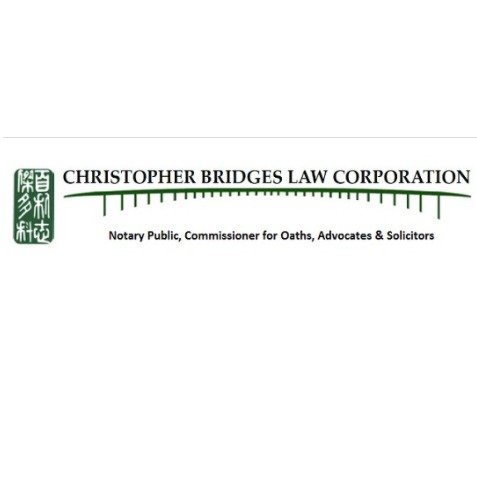Best Employment & Labor Lawyers in Alexandra
Share your needs with us, get contacted by law firms.
Free. Takes 2 min.
List of the best lawyers in Alexandra, Singapore
Singapore Employment & Labor Legal Articles
Browse our 1 legal article about Employment & Labor in Singapore written by expert lawyers.
- Renegotiation of Contracts: Re-Align Framework
- The Re-Align Framework announced by the Ministry of Law on 10 December 2020 will allow small and micro businesses significantly affected by the COVID-19 pandemic to renegotiate certain types of contracts with their counterparties (the “other party”). If parties are unable to successfully renegotiate, the framework provides for the termination... Read more →
About Employment & Labor Law in Alexandra, Singapore
The field of Employment & Labor law in Alexandra, Singapore is framed by multiple key statutes. Some common facets of the law include legalities surrounding employment contracts, wages, working hours, employee benefits, discrimination, and workplace safety. These laws are designed to provide a fair and safe working environment for employees while also securing the rights of employers, and they are enforced by several governmental bodies.
Why You May Need a Lawyer
Obtaining legal assistance may be necessary in a range of situations. For instance, if you believe you’ve been wrongfully dismissed or discriminated against at your workplace; if you're facing issues related to wages, benefits, or working hours; or if you have concerns about workplace safety or harassment. In all these cases, a lawyer can guide you by interpreting laws, offering valuable advice, representing you during legal proceedings, and helping you understand your rights and obligations as per the Singaporean employment law.
Local Laws Overview
Local labor laws in Alexandra, Singapore, are governed by the Employment Act, the Central Provident Fund Act, the Work Injury Compensation Act, and the Industrial Relations Act, among others. Key areas of interest include aspects such as contract of service, payment of salary, and overtime payment rules that employees should be cognizant of. The Employment Act is particularly significant as it covers terms and conditions of employment and the rights and duties of both employers and employees.
Frequently Asked Questions
What constitutes wrongful dismissal in Singapore?
According to the MOM guidelines in Singapore, wrongful dismissal can take place if an employer terminates an employee with the intention of depriving them of benefits, or if the dismissal was discriminatory in nature.
Do labor laws in Singapore provide protection against workplace harassment?
Yes, the Protection from Harassment Act (POHA) in Singapore provides for remedies against harassment and related anti-social behaviour, which includes workplace harassment.
What are the rules about overtime payment in Singapore?
As per the Employment Act, an employee can’t be made to work over 44 hours in a week. Work beyond this limit is considered overtime, for which the employee should receive at least one and a half times the hourly basic rate of pay.
What do I do if I’m not receiving my CPF contributions from my employer?
If an employer fails to contribute to the CPF accounts of eligible employees, it’s considered an offense. Employees have the right to report such employers to the CPF Board.
How are annual leaves calculated in Singapore?
The number of annual leave days that one is entitled to as an employee in Singapore is dependent on the terms of the employment contract and is generally proportionate to one's length of service at the organisation.
Additional Resources
For additional resources, you may want to contact the Ministry of Manpower (MOM) or seek help from organisations like the National Trades Union Congress (NTUC) or the Singapore National Employers Federation (SNEF). Resources are available both online and offline to understand your rights and obligations under local labor law.
Next Steps
If you feel that you may need legal advice, the recommended next step is to find a lawyer specializing in Employment & Labor law in Singapore. Ensure your lawyer is registered with the Law Society of Singapore and has a thorough knowledge and understanding of the local laws. Prepare all relevant employment documents and be ready to discuss in detail the issues you are facing for an effective consultation.
Lawzana helps you find the best lawyers and law firms in Alexandra through a curated and pre-screened list of qualified legal professionals. Our platform offers rankings and detailed profiles of attorneys and law firms, allowing you to compare based on practice areas, including Employment & Labor, experience, and client feedback.
Each profile includes a description of the firm's areas of practice, client reviews, team members and partners, year of establishment, spoken languages, office locations, contact information, social media presence, and any published articles or resources. Most firms on our platform speak English and are experienced in both local and international legal matters.
Get a quote from top-rated law firms in Alexandra, Singapore — quickly, securely, and without unnecessary hassle.
Disclaimer:
The information provided on this page is for general informational purposes only and does not constitute legal advice. While we strive to ensure the accuracy and relevance of the content, legal information may change over time, and interpretations of the law can vary. You should always consult with a qualified legal professional for advice specific to your situation.
We disclaim all liability for actions taken or not taken based on the content of this page. If you believe any information is incorrect or outdated, please contact us, and we will review and update it where appropriate.
Browse employment & labor law firms by service in Alexandra, Singapore
Alexandra, Singapore Attorneys in related practice areas.








